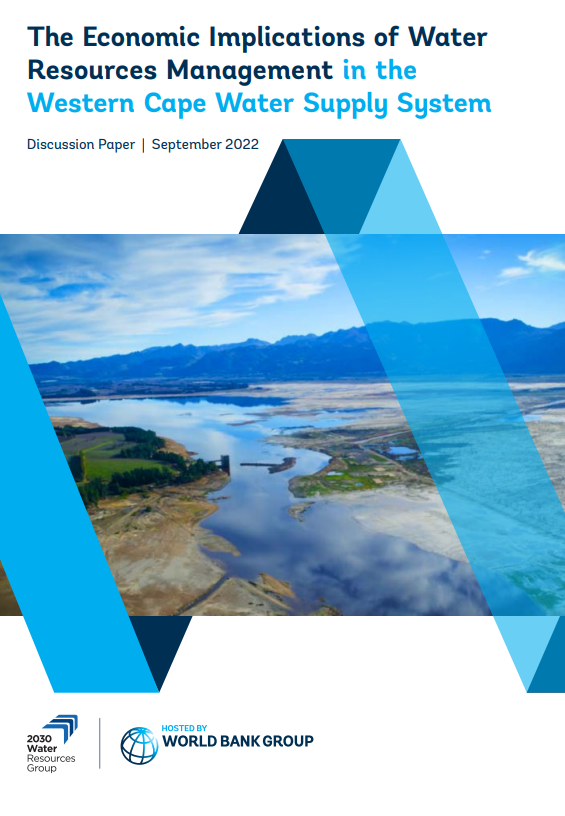The Economic Implications of Water Resources Management in the Western Cape Water Supply System

South Africa grapples with water scarcity, with an annual precipitation rate of 52 percent of the global average. Most dam sites and available water yield are fully exploited, leading to overallocation. This situation is compounded by a substantial funding gap of R33 billion/year in relation to the Water Sustainable Development Goal. The nation's major cities, which house 40 percent of the population and contribute 60 percent of the GDP, confront significant water security risks, posing a systemic threat to the entire country. To address these challenges, a multi-stakeholder dialogue process commenced in 2020, supported by hydro-economic analysis. The primary objectives were to enhance comprehension of the economic consequences of water resource management in the Western Cape Water Supply System (WCWSS) and to strengthen relationships among key stakeholders. This endeavour involved collaboratively crafting economic narratives concerning the costs and advantages of augmentation and opportunities for cultivating a climate-water resilient economy within the City of Cape Town (CoCT) and the province.
This document encapsulates the immediate outputs and results stemming from this initiative. Although the focus was on Cape Town and the WCWSS, the insights are pertinent to numerous large metropolitan or secondary cities and their associated water systems in South Africa and on a global scale. The findings hold relevance for cities worldwide grappling with comparable escalating water stress levels, the strained systems in which they are situated, and the diverse array of stakeholders reliant on these resources.
Abstract based directly on source.


Comments